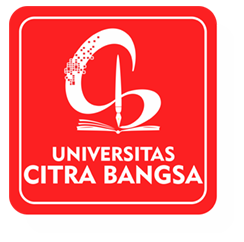PENGARUH MODEL PEMBELAJARAN ROLE PLAYINGTERHADAPKREATIVITAS BELAJAR SISWADALAM PEMBELAJARAN BAHASAINDONESIAKELAS III SDI PERUMNAS II KOTA KUPANG
Keywords:
Role Playing, Kreativitas Belajar, Bahasa IndonesiaAbstract
Bahasa Indonesia merupakan salah satu mata pelajaran yang harus dipelajari oleh siswa SD. Berdasarkan hasil wawancara guru kelas, siswa banyak mengalami kesulitan ketika belajar Bahasa Indonesia karena guru kelas hanya menjelaskan di depan kelas dan memberikan latihan. Akibatnya siswa menjad imalas dan bosan untuk mengikuti pelajaran Bahasa Indonesia sehingga hasil belajar menja direndah. Penelitian ini bertujuan untuk mengetahui pengaruh model pembelajaran Role Playng terhadap kreativitas belajar siswa kelas III SDI Perumnas II Kota Kupang . Jenis penelitian ini menggunakan metode Quasi Eksperimen. Populasi yang diambil adalah siswa kelas IIIA SDI Perumnas II sebanyak 22 siswa dengan menggunakan teknik sampling sistematis terpilih dua kelas sampel yaitu kelas IIIA sebagai kelas eksperimen dan kelas IIIB sebagai kelas kontrol. Hasil penelitian ini menunujukan bahwa terdapat pengaruh model pembelajaran Role Playingterhadap kreativitas belajar siswa. Hasil analisis data dapat dilihat pada nilai rata-rata 76,14 untuk kelas kontrol dan nilai rata-rata untuk kelas eksperimen 78,20. Kesimpulan dari penelitian ini adalah model pembelajaran Role Playng dapat meningkatkan kreativitas belajar siswa di kelas III SDI Perumnas II Kota Kupang
Downloads
Published
Issue
Section
License
Every works in SPASI is licensed under a Creative Commons Attribution-ShareAlike 4.0 International License.
Authors who publish with this journal agree to the following terms:
- Authors retain copyright and grant the journal right of first publication with the work simultaneously licensed under a Creative Commons Attribution License that allows others to share the work with an acknowledgment of the work's authorship and initial publication in this journal.
- Authors are able to enter into separate, additional contractual arrangements for the non-exclusive distribution of the journal's published version of the work (e.g., post it to an institutional repository or publish it in a book), with an acknowledgment of its initial publication in this journal.
- Authors are permitted and encouraged to post their work online (e.g., in institutional repositories or on their website) prior to and during the submission process, as it can lead to productive exchanges, as well as earlier and greater citation of published work (See The Effect of Open Access).




